
- Appointments
- Awards
- Books & Authors
- Committees
- Deaths
- Defence
- Economic
- Environment
- Finance
- Important Days
- International
- Miscellaneous
- National
- Persons in NEWS
- Places in NEWS
- Regional
- Reports
- Resignations & Retirements
- Science & Technology
- Sports
- August 2017 - Exams Resources
- Current Affairs - Quiz
- Current Affairs - Test
- Current Affairs - PDF
Current Affairs August 2017 - Finance
1 - RBI cuts repo rate by 25 bps to 6%
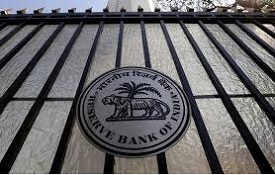
The Reserve Bank of India in its 3rd bi-monthly monetary policy decision of FY 2017-18 reduced the Repo Rate under the Liquidity Adjustment Facility by 25 basis points from 6.25% to 6.0%.
The reverse repo rate under the LAF stands adjusted to 5.75%, and the marginal standing facility (MSF) rate and the Bank Rate to 6.25%.
The MPC also decided to keep the policy stance neutral in consonance with the objective of achieving the medium-term target for consumer price index inflation of 4%. Despite a cut in the benchmark lending rate, RBI retained its GDP forecast to 7.3%.
2 - Airtel Payment Bank ties up with HPCL for ATM services
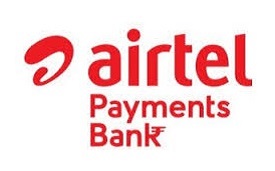
Airtel Payments Bank has partnered with Hindustan Petroleum Corporation Limited (HPCL). As a part of the agreement, all 14,000 HPCL fuel stations will act as banking points for Airtel Payments Bank.
Customers can avail of services like opening new accounts, make cash deposits and withdrawals facility, and transfer money at these fuel stations.
The customers of Airtel Payments Bank will also be able to make secure and convenient digital payments for fuel purchases across these fuel outlets by using their mobile phones.
3 - SBI debit cards now on Samsung Pay app
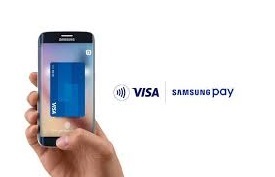
Samsung India announced that its flagship mobile payments service Samsung Pay will now be available for higher variants of SBI Debit Card, offering 130 million State Bank of India customers an opportunity to tap and pay on the go while using a wide range of Samsung smartphones.
This collaboration turns the Samsung smartphones into electronic card-holders and users can pay at point-of-sale (PoS) terminals with just a tap on the cards stored in Samsung Pay.
4 - Government announced new exchange traded fund, Bharat-22

Finance Minister Arun Jaitley announced a new Exchange Traded Fund (ETF) named BHARAT 22 which consists of 22 scrips including ONGC, IOC, SBI and Axis Bank.
The government had raised about eight thousand 500 crore rupees through the three tranches of CPSE Exchange Traded Fund last fiscal.
ICICI Prudential AMC will be the ETF Manager and Asia Index Private Limited will be the Index Provider. The index will be rebalanced annually.
ETF functions like a mutual fund scheme and is bought by investors as units. Bharat-22 will have a diversified portfolio of six sectors, including energy, FMCG, finance, basic material and industrial and utilities.
5 - Government revised the base year of All-India Wholesale Price Index (WPI) from 2004-05 to 2011-12
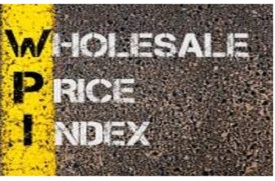
The Government has revised the base year of All-India Wholesale Price Index (WPI) from 2004-05 to 2011-12 in line to Gross Domestic Product (GDP) and Index of Industrial Production (IIP).
Some of the salient features and improvements are:
The revised basket of WPI and its weighting structure conform to the structure of economy in 2011-12.
The number of items in the basket has increased from 676 to 697 and the number of price quotations has increased from 5482 to 8331.
New series of WPI does not include indirect taxes. This is in consonance with international practices and will make the new WPI conceptually closer to Producer Price Index.
A new Food Index is compiled to capture the inflation in food items.
6 - 85.77 lakh Self Help Groups have saving deposits of over Rs. 16,114 crore with banks as on 31.3.2017
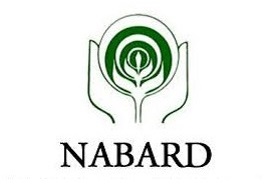
As per information compiled by National Bank for Agriculture and Rural Development (NABARD), as on 31st March 2017, 85.77 lakh Self Help Groups (SHGs) have saving deposits of over Rs. 16,114 crore with banks. It is estimated that these SHGs cover more than 10 crore rural households.
70% of the total savings of the groups are used for internal lending of the groups. During the last three years, Rs. 94934 crore has been disbursed as loans to Women SHGs at 7% interest per annum with interest incentive of 3% payable on prompt repayment reducing the effective interest to 4% per annum.
7 - Lok Sabha passed Bill to raise NABARDs Capital to Rs 30,000 crore
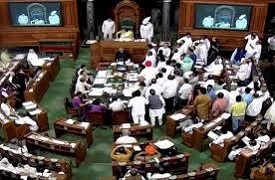
The Lok Sabha has passed the National Bank for Agriculture and Rural Development (Amendment) Bill, 2017 to enable exit of RBI from NABARD and increase authorised capital of the development institution from Rs 5,000 crore to Rs 30,000 crore.
RBI currently holds 0.4% of the paid-up capital of NABARD and the remaining 99.6% is held by the central government.
The Bill also seeks to amend certain clauses in the light of reference of the Micro, Small and Medium Enterprises Development Act, 2006 and the Companies Act, 2013 in the proposed legislation.
8 - Kotak Mahindra Bank launches Kotak Remit
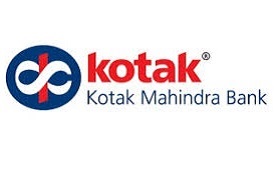
Kotak Mahindra Bank announced the launch of Kotak Remit (https://kotak.remit.in) an Aadhaar-based integrated outward forex remittance solution for both customers and non-customers.
The 24x7 forex remittance service offers a completely paperless process that enables users to register online using Aadhaar and PAN numbers, and initiate remittances instantly.
The Bank has partnered with Earthport Plc, the leading network for cross-border payments, to transfer money seamlessly across the world. A customer can remit up to USD 25,000 or equivalent per financial year through Kotak Remit. Users will receive a notification at every stage of the transaction process.
9 - e-Shakti initiative of NABARD
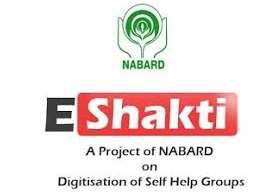
e-Shakti is a pilot project of National Bank for Agriculture and Rural Development (NABARD) for digitisation of Self Help Groups (SHGs).
It was initiated to address certain concerns like improving the quality of book keeping of SHGs and to enable banks to take informed credit decisions about the group through a Management Information System (MIS).
The project covers 25 districts and 1,30,176 SHGs have been digitised as on 31st March 2017. As per information compiled by NABARD, about 69,696 SHGs of the SHGs which have been digitised are credit linked as on 31st July, 2017.
10 - Direct Tax Collections up to July, 2017 show a Growth of 19.1%
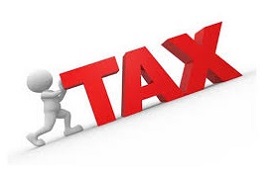
The Direct Tax collections up to July, 2017 in the Current Financial Year 2017-18 stands at Rs. 1.90 lakh crore which is 19.1% higher than the net collections for the corresponding period of last year.
The growth rate for Corporate Income Tax is 7.2% while that for Personal Income Tax (including STT) is 17.5%.
Refunds amounting to Rs. 61,920 crore have been issued during April, 2017 to July, 2017 which are 5.1% lower than the refunds issued during the corresponding period of Financial Year 2016-17.
11 - ICICI Bank launched instant credit cards

ICICI Bank, Indias largest private sector bank announced the launch of instant credit cards. This first-of-its-kind offering in the Indian banking industry enables the savings account customers of the Bank to get a credit card instantly, in a completely digital and paperless manner.
This new offering enables pre-qualified customers to instantly get the credit card number and other important details online, with a credit limit of up to Rs 4 lakh based on pre-checked bureau scores. Currently, this facility to apply for a credit card ina-flash is available through the Banks internet banking platform.
12 - IDFC Bank partnered with Zeta to launch IDFC Bank Benefits

IDFC Bank has partnered with Zeta, a leader in the digitized employee benefits space, to launch IDFC Bank Benefits - an innovative solution for corporates that digitizes employee spends and claims, making the process simple, real-time and paperless.
The IDFC Bank Benefits Card, powered by Zeta, bundles all employee benefits into a single card. The Benefits Card and Zeta app enhances user experience as it places convenience and flexibility in the hands of the employee, while enabling employers to digitally review and manage reimbursements.
13 - Axis Bank reduced savings account interest rate to 3.5%
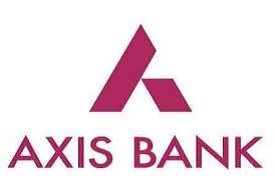
Private lender Axis Bank reduced interest rate on savings bank accounts by 50 basis points to 3.5 per cent for deposits up to Rs 50 lakh.
As per new interest rates introduced, bank will continue to pay 4 per cent interest on deposits of above Rs 50 lakh. The rate of inflation and high real interest rates are the reasons for reducing interest rates.
Recently, State bank of India also reduced interest rates to 3.5% for deposits up to 1 crore. Axis Bank is the fourth lender to reduce the interest rate, after SBI, Bank of Baroda and Karnataka Bank.
14 - Canara Bank introduced Bharat QR and BBPS
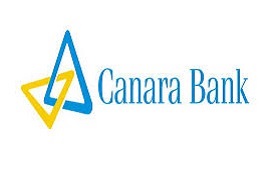
Two new digital services Bharat QR (Quick Response) and Bharat Bill Payment System (BBPS) was introduced by Canara Bank.
Bharat QR Code works on the model of Paytm, wherein the customer scans the QR code of the merchandise and then transfers the money from his/her wallet.
Bharat QR Code involves low cost and an excellent collaborative approach by the payment networks. BBPS is designed to function as a tiered structure for operating the bill payment system in the country with a single brand image providing convenience of anytime anywhere bill payment to customers.
15 - Karnataka Vikas Grameen Bank bagged the best performer award

National Bank for Agriculture and Rural Development (NABARD) has conferred the "best performance award" for 2015-16 and 2016-17 to Karnataka Vikas Grameen Bank (KVGB) for its work in the field of credit-linking joint liability groups (JLGs).
The bank had credit linked 1,194 JLGs by disbursing 19.38 crore during 2016-17. The outstanding accounts under JLGs stood at 6,329 involving an amount of 63.83 crore.
16 - Corporation Bank received awards from NABARD
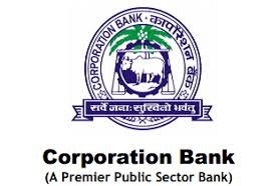
Corporation Bank has bagged the best performance awards for SHG-bank linkage programme for Karnataka for 2015-16 and 2016-17 from National Bank for Agriculture and Rural Development (NABARD).
The bank was given the award for its overall performance under SHG-bank linkage programme for 2015-16 and 2016-17 among commercial banks operating in Karnataka. The bank has formed more than 1.32 lakh self-help groups (SHGs) till date.
17 - SBI Foundation launched SBI GRAM SEVA
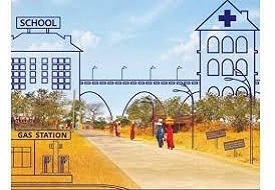
State Bank of India launched its integrated CSR initiative SBI GRAM SEVA under SBI Foundation that aims to reach to maximum of 100 Gram Panchayats covering approximately 500 villages across India by 2021.
As a part of the initiative, the bank will work in the areas of health, education, environment and rural infrastructure.
The SBI Foundation will identify and partner with NGOs to carry out CSR initiatives.
18 - Karur Vysya Bank Opens its First Aadhaar Enrolment Centre
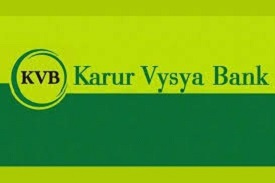
Karur Vysya Bank is the first private sector bank to provide Aadhaar Enrolment Centre service in the country as part of the Unique Identification Authority of India advisory to commercial banks to provide Aadhaar enrolment and updation facility at various branches in its July 13 notification.
Karur Vysya Bank unveiled the first Aadhaar Enrolment Centre in Chennai. Customers need to bring in the approved documents as proof of residence and identity.
19 - RBI made Aadhaar Linkage mandatory for Farmers
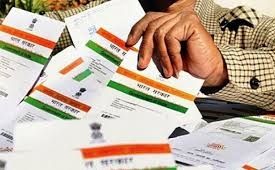
The Reserve Bank of India (RBI) has asked banks to make Aadhaar cards linkage mandatory for farmers to avail short-term crop loans in 2017-18. The move would ensure hassle-free benefits to farmers under the Interest Subvention Scheme.
RBI has clarified that farmers can avail of short-term crop loans of up to 3 lakh rupees at subsidised interest rate of 7%. Further, farmers who repay the loan in time will be provided an additional interest subvention of 3%.
20 - RBI to issue new Rs 50 currency note
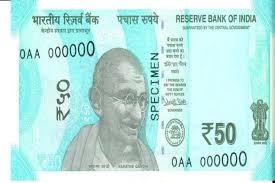
RBI will issue new banknotes of Rs 50 denomination in the Mahatma Gandhi (New) Series. The base colour of the new notes will be fluorescent blue and its dimension will be 66 mm x 135 mm.
The new note will have a motif of Hampi with Chariot on the reverse, depicting the countrys cultural heritage along with the Swachh Bharat logo, year of printing, numeral 50 in devnagiri and the language panel.
It will have Mahatma Gandhis portrait at the Centre and a see-through register with denominational numeral 50.
21 - First Regional Centre of NDB Opens in South Africa
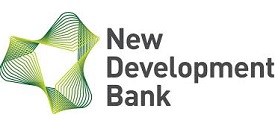
The first regional centre of the New Development Bank, set up by India and other BRICS nations, was officially opened at Johannesburg by South African President Jacob Zuma and the bank's Indian Head K V Kamath.
The New Development Bank (NDB), formerly referred to as the BRICS Development Bank, is a multilateral development bank established by the BRICS states (Brazil, Russia, India, China and South Africa) with an initial authorised capital of the bank is USD 100 billion.
22 - SBI tops share of Wilful Default to PSBs
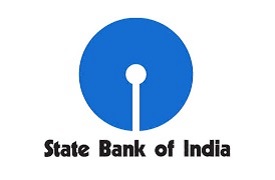
Public Sector lender, State Bank of India, accounts for over 27% of the total amount owed to public sector banks by wilful defaulters. Almost 1,762 wilful defaulters owed 25,104 crore as on March 31 to SBI.
The second in the list is Punjab National Bank (PNB) with 1,120 wilful defaulters having outstanding non-performing assets (NPAs) of 12,278 crore. Total outstanding loans due to public sector banks by wilful defaulters amounted to 92,376 crore.
23 - Two regional rural banks record over 150-cr profit in FY17
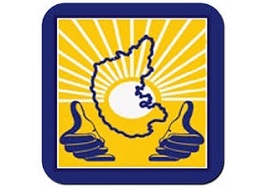
According to the Reserve Bank of Indias Report on Trend and Progress of Banking in India, two regional rural banks in the country have earned a net profit of over 150 crore each during 2016-17.
The two RRBs are Karnataka Vikas Grameena Bank and Andhra Pragathi Grameena Bank promoted by Syndicate Bank.
According to the report, 49 RRBs among 56 RRBs in the country, recorded a profit in 2016-17. Seven RRBs suffered losses during the period. At the end-March 2017, RRBs had 21,398 branches spread across 676 districts and 28 States.
24 - NPCI approved Spice Digitals operation under Bharat Bill Payment System
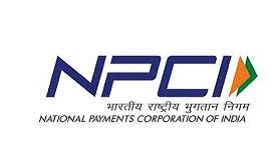
The National Payments Corporation of India (NPCI) has given its approval to Spice Digital Ltd. for processing bill payments under the Bharat Bill Payment System (BBPS) as a Bharat Bill Payment Operating Unit (BBPOU).
Under the BBPS, a customer can make several bill payment such as electricity, telephone, water etc. and receive instant confirmation.
Spice Money Ltd, a fintech company had received an in-principle approval to set-up as a BBPOU under the Payment and Settlement Systems Act, 2007 in May 2016. and now it has received approval for processing.
25 - IRDAI Launches Central Database of Insurance Sales Persons
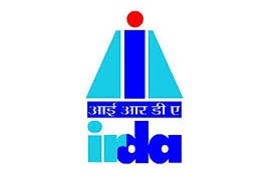
The Insurance Regulatory and Development Authority of India (IRDAI) has launched a Central Database of all Insurance Sales Persons in the country.
The database has been named as `Envoy. The database will ensure that all licensed insurance sales persons working for insurers and intermediaries do not work with multiple insurers and intermediaries in the same business category.
The database also provides a search facility for insurers and insurance intermediaries whereby an applicant insurance sales person's details are queried for a match in the database.
26 - HDFC Bank launched All-in-one PoS Machine
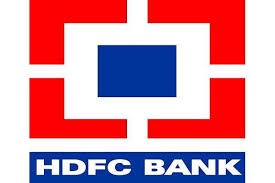
HDFC Bank launched an all-in-one Point of Sale (POS) machine - DigiPOS. The initiative integrates all popular digital payment methods in POS machines thus offering greater convenience to both customers and merchants.
The machine which will accept payments through Unified Payments Interface (UPI), BharatQR, SMS Pay and the banks mobile wallet, in addition to the traditional mode of swiping cards.
The merchants using this facility will have update their machine with a software at no cost, but the new software will work only on HDFC Bank-issued PoS machines, however it will accept any card or App from any bank/service provider.
27 - Banks to Pay 3% IGST on Gold Imports
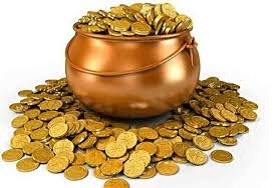
The Central Board of Excise and Customs has clarified that banks importing gold and precious metals will have to pay 3% tax under the GST which can be claimed as input tax credit.
3% Integrated-GST is payable on all imports of precious metals in addition to the basic customs duty. Import of gold attracts a 10% basic customs duty.
The Central Board of Excise and Customs said banks did not pay any VAT on import of precious metals previously. They only paid customs duty. However, under GST, 3% Integrated-GST is payable on all imports of precious metals in addition to the basic customs duty. IGST paid can be taken as input tax credit by the banks.